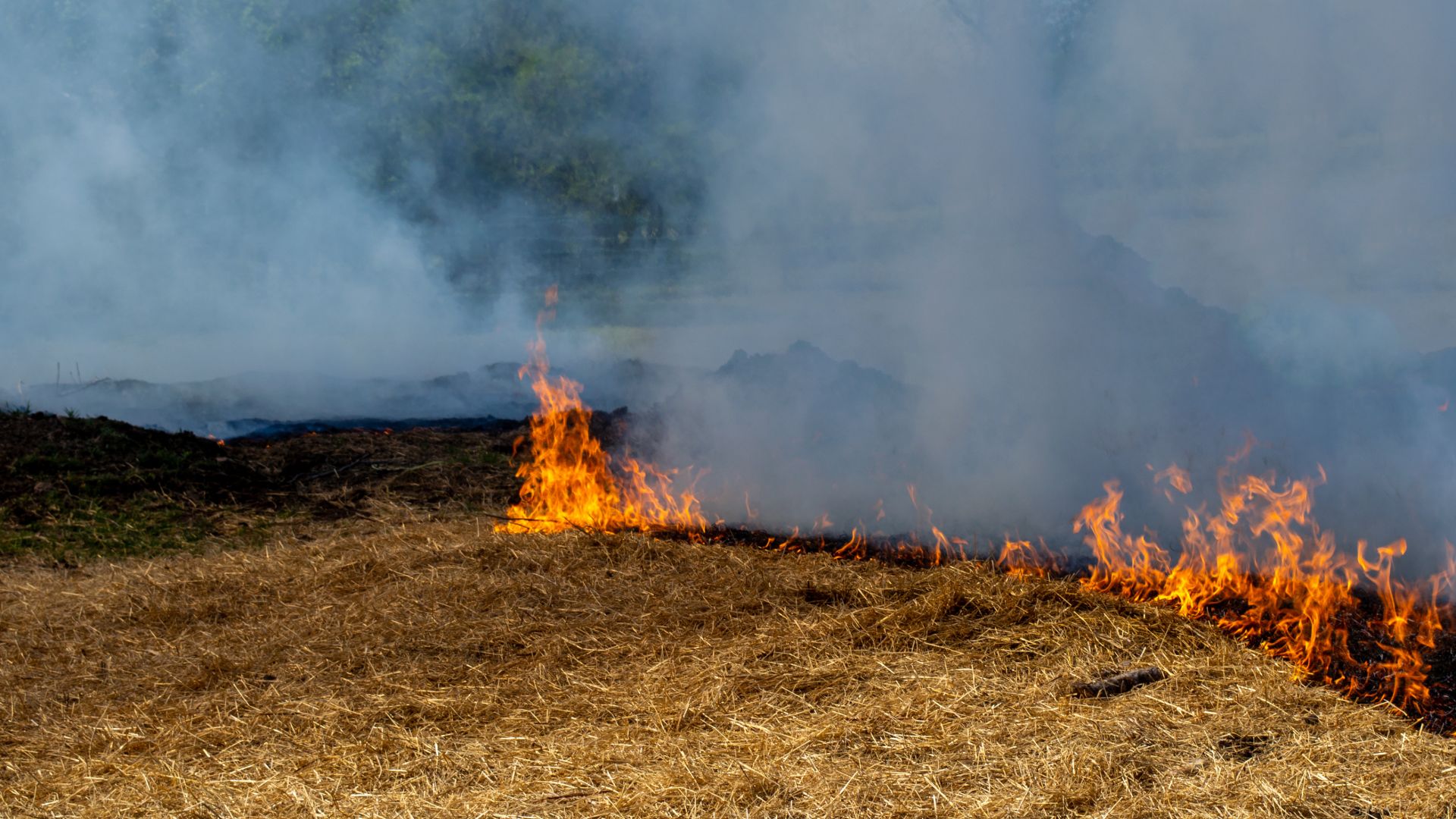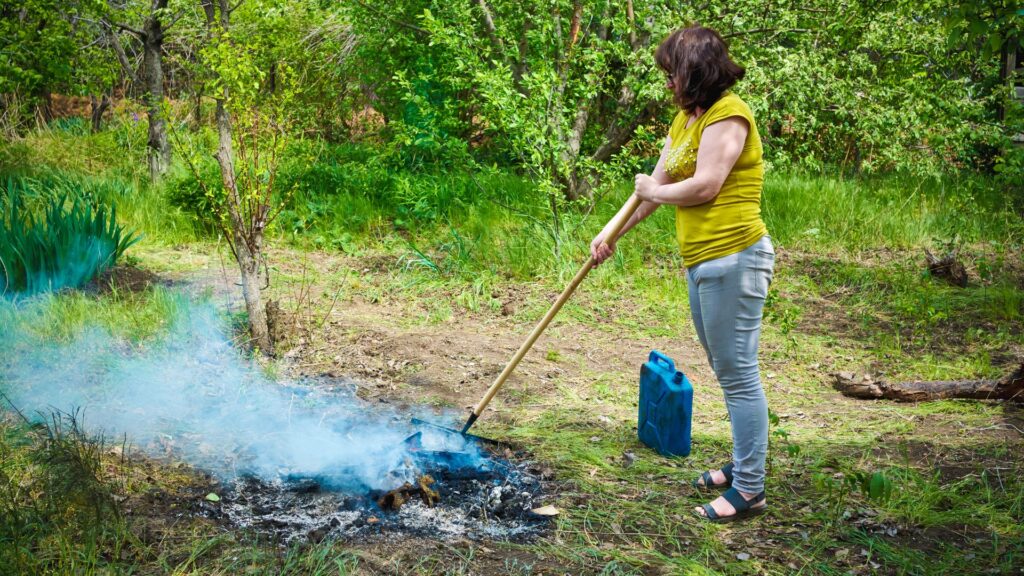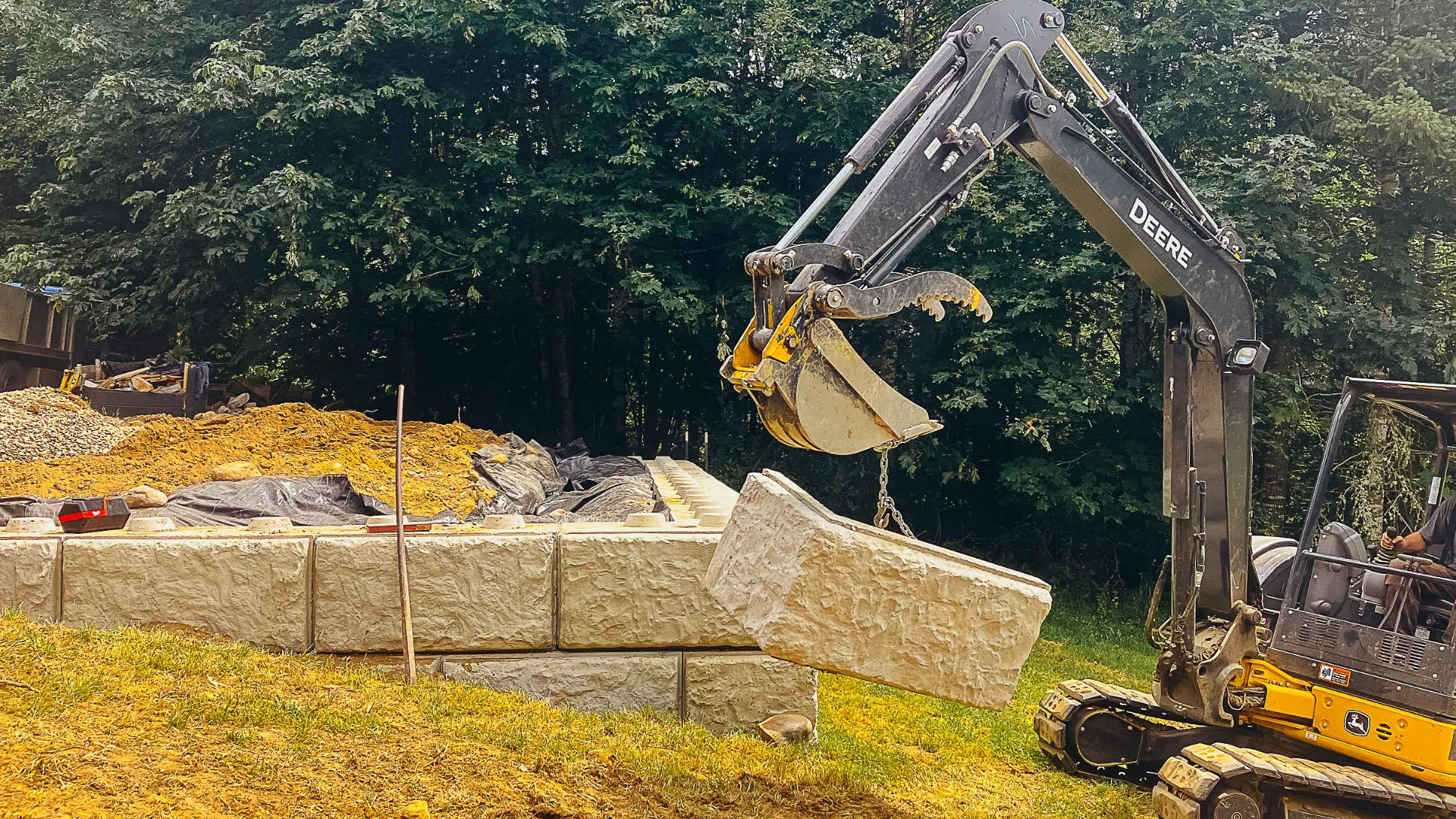
What Is Fire Resistant Mulch and Should You Use It?
Mulch plays an important role in your garden and landscaping. It helps your soil retain moisture, protects plant roots from extreme temperatures, prevents soil erosion, and gives your landscape a finished look.
But for all the good mulch does, one downside is that many mulches are a fire hazard. While that seems logical if you use mulch made of combustible materials like pine bark nuggets or shredded wood, it’s hard to put a mulch fire out once it ignites.
Fortunately, some mulches are more fire-resistant than others and reduce the risk to your plants, property, and surrounding area.
Which Are the Different Kinds of Mulch?
There are two kinds of mulch: organic and inorganic.
Organic mulches are made from organic materials, such as wood, straw, and pine needles. They are a popular choice because as the mulch decomposes, it adds valuable nutrients to the soil, keeping it healthy and feeding the plants.
Inorganic mulches are made of natural and synthetic materials. For example, rocks, stones, and gravel are natural materials, while shredded rubber is generally made from synthetic and recycled materials. Inorganic mulches don’t break down like organic mulches but are often better at preventing soil erosion and protecting plant roots throughout the year.
What Are Fire Resistant Mulches?
Saying something is “fire resistant” doesn’t mean it won’t catch fire. For example, your couch may be fire-resistant but contain combustible materials. “Fire resistant” generally means it takes something longer to catch fire and burn, but it will happen eventually.
Like a couch, all mulches are combustible and will catch fire under the right circumstances. However, some mulches are more fire-resistant than others.
Two universities, the University of Nevada and the University of Arizona, tested and measured the fire resistance of several mulch types. While the studies didn’t test the same materials, many were similar. Both studies focused primarily on natural materials, like composted wood chips, bark nuggets, and pine needles. The University of Nevada tested shredded rubber, and the University of Arizona tested decomposed granite.
While the University of Nevada researchers didn’t specifically test stone, rocks, or gravel, both studies concluded that these types of mulch are the most fire-resistant. They’re unlikely to catch fire even when exposed to high temperatures or an open flame.
Interestingly, the University of Nevada study found that composted wood chips in a single two to three-inch deep layer and Tahoe chips were the most fire-resistant after stone. While they ignited under test conditions, the composted wood chips smoldered and had a shorter flame height compared to the other mulches.
The University of Nevada study also concluded that the least fire-resistant mulches were (in order), shredded rubber, pine needles, and shredded western red cedar mulch. The study noted that the shredded rubber burned the hottest and produced the largest flames (about three feet tall).
The University of Arizona’s test found that wheat straw and pine needles were the least fire-resistant, closely followed by wood chips and bark nuggets.
Why Are Mulch Fires Hard to Put Out?
There are two reasons why mulch fires are hard to extinguish.
First, because most mulches are combustible, the flames can spread quickly across the entire pile. While you’re dousing flames in one part of the pile, the fire can ignite surrounding materials quickly and easily.
The other reason mulch fires are hard to put out is that mulch can also smolder. The mulch is combusting, but there’s no visible flame, making it likely the fire will go undetected by firefighters, allowing it to spread.
Can You Make Mulch More Fire-Resistant?
Not everyone wants to use rocks, gravel, and stones in their landscape design. They have downsides, like retaining too much heat that damages plant roots, and they don’t decompose to feed the soil.
If you use something like wood or straw and want to reduce the risk they go up in flames, you can spray them with a fire retardant spray. It won’t fireproof the mulch, but it will stall the spread for five to 10 minutes. And you may have to reapply the spray regularly as water-soluble solutions will wash away when it rains.
Another way to make your mulch more fire-resistant is by keeping it moist. Damp mulch is less likely to ignite, but if you live in a wildfire-prone area, this may not be a good solution. When the weather is hot, dry, and windy, the mulch will likely dry out long before a wildfire reaches your property.
Protect Your Property
Ultimately, the best way to use fire-resistant mulch in your landscaping is to use rocks and stones close to your house and other mulches, like wood or shredded rubber, farther away. While this won’t stop mulch from igniting under the right circumstances, it increases the odds your home won’t be damaged by flames.
If you’re ready to design the outdoors of your dreams, Dig’Um Dirtworks can help. We’re your trusted Port Angles and Olympic Peninsula landscape design partner. Contact us today for a free consultation.
Most Recent Post


